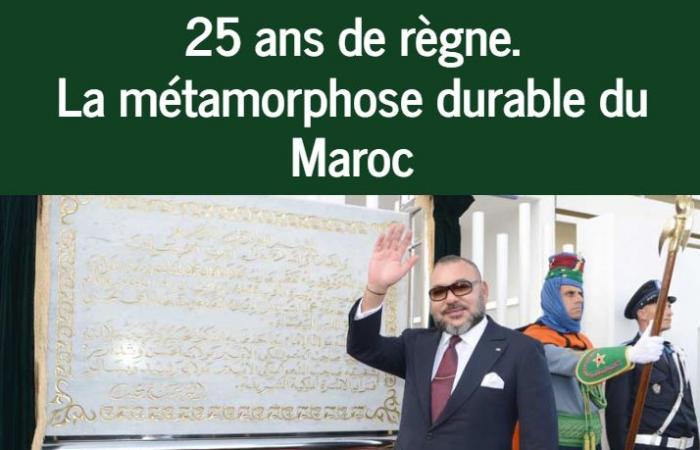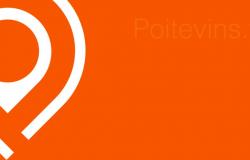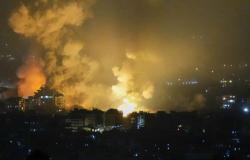At a time when education is evolving to meet the demands of the job market, the internationalization of diplomas is positioned as a strategic lever for Morocco. This dynamic, which promotes the international recognition of qualifications, student mobility and partnerships with foreign institutions, aims to strengthen the country’s competitiveness on the world stage. However, this transformation raises crucial issues related to the quality of education, equity of access and adaptation to international standards.
In an era of major changes taking place in different fields of activity, the evolution of education goes hand in hand with this transformation to meet the demands of the job market. The internationalization of diplomas has thus established itself as a new educational practice. It has become a major focus in higher education policies around the world, and Morocco is no exception to the rule.
This internationalization, which includes international recognition of diplomas, student mobility and collaboration with foreign establishments, aims to strengthen the country’s competitiveness on the global stage. However, it also poses challenges in terms of quality, equity and adaptation to international standards.
A process in progress
For context, the internationalization of diplomas in Morocco has seen notable progress since the 2000s. Several public and private establishments have established partnerships with foreign universities, thus allowing Moroccan students to access diplomas. with double recognition. Engineering schools, medical faculties, as well as business schools are among the pioneers in this initiative, thanks to agreements with European, American and even African institutions.
As part of the Sustainable Development Goals, Morocco has launched an ambitious reform of its higher education system to boost productivity and support economic growth. This reform aims to redefine the missions of universities, improve the quality of teaching and strengthen internationalization. The training accreditation program, driven by the Ministry of National Education, has made it possible to improve the quality of the diplomas awarded and align them with international standards. At the same time, programs such as Erasmus+ have facilitated the mobility of Moroccan students, by offering them training opportunities abroad.
In this sense, Morocco has intensified its partnerships with foreign universities and schools, allowing many establishments to offer international diplomas or courses in collaboration with world-renowned institutions. These partnerships aim to attract foreign students while offering Moroccans international study opportunities without leaving the country. Moroccan universities have opened campuses abroad which have become showcases of academic excellence with international standards. This is particularly the case of the Mohammed VI Polytechnic University.
Also among the reforms is the ESRI PACT 2030, an initiative focused on digital transformation and international partnerships. Morocco has thus strengthened its role as a major player in higher education in the region.
The objective is to promote inclusive internationalization through adapted programs, teacher training and the establishment of strong partnerships. Inclusive public policy is also essential to improve the quality of higher education in the country.
What support?
Furthermore, mobility and scholarship programs are put in place to encourage the mobility of Moroccan students towards foreign universities, mainly in Europe, the United States, and in certain African countries, and vice versa.
In terms of advantages, competitiveness comes first. Indeed, internationalization makes it possible to provide Moroccan students with globally recognized diplomas, thus increasing their employability abroad and on the national market. This also makes it possible to train a qualified workforce that meets the needs of an increasingly globalized market. Strengthening the attractiveness for foreign students is not to be outdone.
By developing study programs with an international dimension, Morocco is becoming a preferred destination for African students, particularly from sub-Saharan Africa, thus strengthening its role as a regional educational hub. As for the quality of teaching, which remains a must, exchanges of teaching practices, openness to innovative teaching methods and collaboration between researchers further promote the emergence of a more efficient academic environment.
The internationalization of diplomas also promotes scientific and cultural cooperation between Morocco and other countries. This makes it possible to develop joint research projects, strengthen academic exchanges and enrich the cultural and intellectual capital of the country. Ultimately, the internationalization of diplomas in Morocco is a process that remains in full expansion, aiming to modernize the Moroccan education system while integrating it into global dynamics. The strategies implemented show a real desire to develop quality higher education, in line with international requirements.
However, challenges remain, particularly in terms of matching academic offerings with market needs, as well as in terms of financing and management of partnerships. Certainly, the dynamic is underway, but it is also necessary to mention the distinction between the different practices allowing the valorization of Moroccan diplomas. These include the accreditation system, that of double diplomas and equivalence.
Accreditation vs recognition
Concerning the recognition and accreditation of diplomas, it is intended for universities and private higher education establishments, which must meet the educational standards of higher education while respecting the eligibility criteria set by the supervisory ministry. However, there is a difference between accreditation and recognition.
You should know that in Morocco, the sector has three types of private higher education establishments: authorized establishments, accredited establishments and recognized establishments. The opening of each private higher school must be authorized by the Ministry of Higher Education. Following obtaining this authorization, the establishment concerned can start its courses.
On the other hand, accreditation is a certificate of enhancement of the quality of a private school or one of its sectors. It ensures and guarantees the reliability and credibility of an establishment. The main objective of accreditation is to encourage private higher education institutions to establish a high-level teaching service, which meets the needs of the job market. Recognition is a process that ensures the quality and level of education delivered by a private higher education establishment. It makes it possible to promote the diplomas of private establishments and make them more recognized in the public sector.
The recognition of a private higher education establishment also means that the diplomas issued by this establishment are equivalent to State diplomas, which allows the winners to participate in public sector competitions, or to continue their studies within the public establishments (by organizing bridges between private and public establishments). However, the accreditation of a sector is valid for a certain number of years. It may be withdrawn if one of the criteria on the basis of which accreditation was issued is no longer respected.
Equivalence
Equivalence is only valid for foreign diplomas recognized by the Moroccan state. For this, a digital procedure was put in place in 2023. Since then, the number of equivalence requests has increased significantly, the process having been simplified.
Note that equivalence offers foreign graduates the possibility of joining the civil service, which makes the system crucial. Thus, the E-equivalence platform, launched with the aim of facilitating the process, which used to be long, aims to speed up the process of requesting diploma equivalences.
Thus, to carry out this procedure, the Ministry of Higher Education has made available five specialized commissions in various fields, which are highly qualified to grant equivalence based on very precise criteria. Applicants can thus directly enter their personal information, information relating to training courses, attach the required parts and documents constituting the equivalence request file and make an appointment for the submission of the physical file.
This platform also provides the possibility of accessing a set of services including consultation and downloading of legal references regarding the equivalence of diplomas, as well as information on administrative procedures and formalities and the documents required for the application for diplomas. ‘equivalence.
In addition, it allows you to view and monitor the progress of processing the application for obtaining equivalence in real time, from the stage of registration and submission of the application until receipt of ‘a letter of approval or rejection.
Double diplomation
Unlike internationalization, double diploma certainly allows you to benefit from two diplomas issued by two establishments. However, it requires a procedure to obtain equivalence in order to assert the foreign diploma.
However, the double diploma allows the student to acquire dual skills, which represents an asset for better professional integration. Note that these routes remain popular. Hybrid profiles demonstrate academic and cultural richness and a great capacity for adaptation and are increasingly sought after by recruiters.
This concept of relocation of diplomas was successful, initially with private establishments. A competitive advantage, particularly for establishments accredited by the State. But over time, the practice has spread to Moroccan universities which now offer double degrees, so much so that some of them have launched double degree Masters scholarship programs with foreign partners.
And most often in collaboration with the Cooperation and Cultural Action Service of the French Embassy in Morocco (SCAC). Completing a double degree is more common from a bac+4 with the aim of obtaining a master’s or an MBA.
Maryem Ouazzani / ECO Inspirations
whatsapp Receive recent economic news on your WhatsApp






